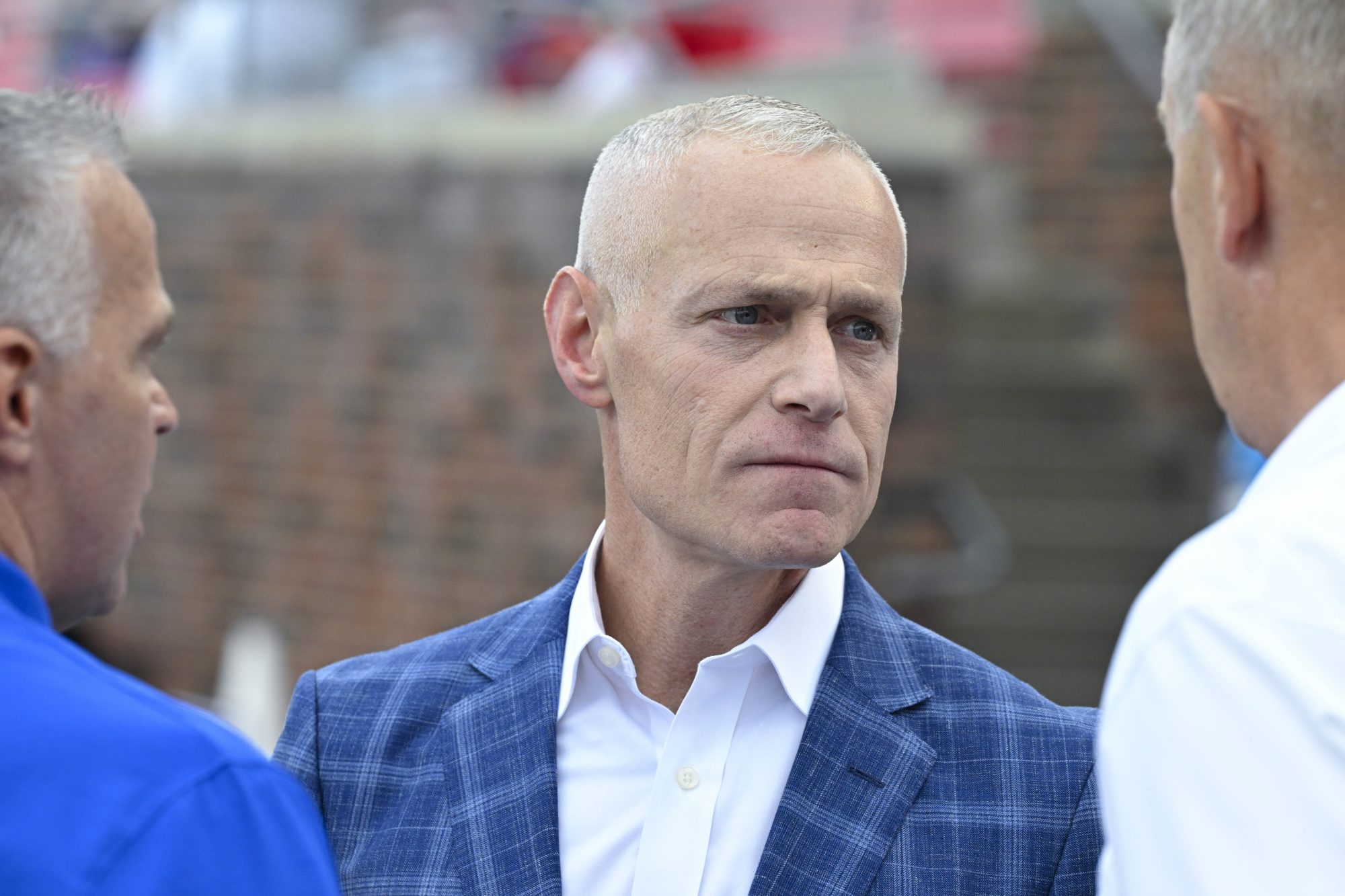SEC and Big Ten commissioners and athletic directors will meet this week in Nashville to discuss issues related to the future of college sports, including a potential future football scheduling partnership. The meetings are an extension of a collaboration (dubbed an “advisory committee”) between the two conferences established in February.
The conversations look to some in the industry like the NCAA’s two heavyweight leagues coming together to chart the course of the NCAA’s future themselves. But one of the other power conferences, the Big 12, isn’t concerned about the meetings or reports of a scheduling alliance between the Big Ten and SEC.
“I don’t wake up thinking about the Big Ten and the SEC,” Brett Yormark, commissioner of the Big 12 conference, tells Front Office Sports at the Advertising Week event in New York City. “I really focus on—how does the Big 12 become the best version of itself? If we do that, we’ll take care of business in the right way.
“Obviously, it’s received a bit of press, but—not focused on it. Really,” he added.
Yormark is working on what can create value for his current members, he said. During a panel, Yormark discussed the value of having more events in major media markets like Las Vegas, where there’s no Big 12 footprint “yet.” He is reportedly considering private equity deals and naming rights deals, and he has led conversations around potentially adding UConn to the league to bolster its already top-tier basketball—though he paused those conversations at the direction of his members earlier this year.
The power struggle among the Power 4 ebbs and flows depending on this issue.
Yormark and the Big 12, as well as the ACC and commissioner Jim Phillips, collaborate with the Big Ten and SEC on plenty of issues from lobbying in Congress to the House v. NCAA settlement (for which they are joint defendants along with the NCAA and Pac-12). The Big Ten and SEC have not formally claimed they will unilaterally decide the future of college sports—and SEC commissioner Greg Sankey has even said he hopes to bring others into the conversations.
But there’s concern the Big Ten and SEC could have outsized influence on the future college sports landscape. The conferences are considered the two most powerful and wealthy in the NCAA, and they have already flexed their muscles in previous negotiations. For example, they landed a contract for the College Football Playoff that, starting in 2027, awards them 59% of all CFP revenue distributions.
Standing in the hallway of the Advertising Week conference in New York, though, Yormark seemed nonplussed. “I feel really good about our position as a conference,” he said.







![[Subscription Customers Only] Jun 15, 2025; Seattle, Washington, USA; Botafogo owner John Textor inside the stadium before the match during a group stage match of the 2025 FIFA Club World Cup at Lumen Field.](https://frontofficesports.com/wp-content/uploads/2026/02/USATSI_26465842_168416386_lowres-scaled.jpg?quality=100&w=1024)
![[Subscription Customers Only] Jul 13, 2025; East Rutherford, New Jersey, USA; Chelsea FC midfielder Cole Palmer (10) celebrates winning the final of the 2025 FIFA Club World Cup at MetLife Stadium](https://frontofficesports.com/wp-content/uploads/2026/02/USATSI_26636703-scaled-e1770932227605.jpg?quality=100&w=1024)








